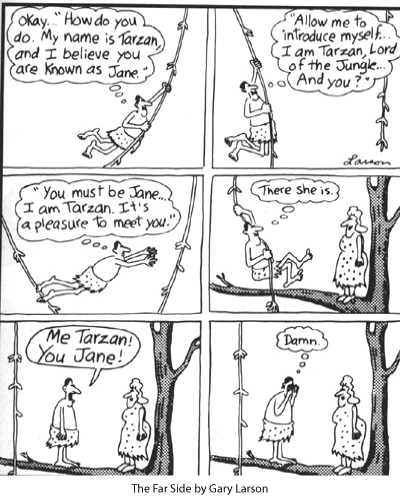 I recently started a new course of study with the composer, organist and improviser Jurgen Essl in Stuttgart.
I recently started a new course of study with the composer, organist and improviser Jurgen Essl in Stuttgart.
This is a wonderful and salutary experience for me, having worked so much on my own, to bring my development as an improviser to the attention of someone with this level of experience and deep musical knowledge.
My first lesson was, from the point of view of my own proficiency (i.e., as a demonstration of skill), a disaster! Clearly I was unable to piece together even the simplest material in the Baroque style which I had been studying for so long.. From a psychological point of view, perhaps it was more successful: rather than feeling cast down by my miserablt show of abailities, I was able to focus on Jurgen's instructions which clearly formed a basis for further development. I think if this kind of experience had happened to me as a young man, I would have been very upset and humiliated, so clearly I have learnt something from my psychological investigations!
In general, I knew it was not going to be easy, but still I was surprised at the extent to which I was unable to produce a simple, fluent improvisation. In spite of my recent work improvising in baroque style at home, it seemed as if a vast gulf exists between what Chomsky (in a linguistic context) would refer to as my competence (mental awareness, implicit knowledge and ideals) and performance (what I actually produce). Let's consider then what I had been doing:
- I had been piecing together lots of ideas in a baroque style, practising figurations, making sequences, and trying to understand the various relationships of consonance and dissonance.
- I had been studying works by Bach and Buxtehude, analysing some of the structural plans, writing out the rhythmic motifs.
- I had been practising fugue constructions, using a variety of different fugal themes.
 This practice had left me with an unfocused and generalised knowledge base.
This practice had left me with an unfocused and generalised knowledge base.
While playing at home, I could sometimes achieve nice results - but these results were momentary, interspersed amongst a great deal of trial and error. Probably my biggest achievement was emotional, in the sense that I was not afraid to improvise: I could enjoy the process of trial and error, and could play around with all different types of musical construction. My biggest problem was that, when it came to a 'product' moment - when I actually had to come up with something coherent, then I didn't know what to do. Playing in church for example was an ordeal, because I had no resources or techniques with which to organise my material. I was left with a very complex mental state, of incoherent goals, and (corresponding) emotional reactions. Note, that the incoherence of my knowledge (by this I mean the procedural knowledge of 'what to do') left me with other problems to confront: I questioned my relationship with the listeners, the context in which I found myself, my attitude towards music, performance, etc.
Working with Jürgen taught me the following:
- To focus unrelentingly on one aspect of the texture - in this case the harmonisation of a chorale theme.
- Jürgen told me to decide on a harmonisation of the chorale melody, and to keep this harmonisation for further treatment (variations).
- From this harmonisation, came tasks such as putting the melody in the alto, the tenor and the bass.
- To harmonise with three voices in the right hand, just the bass in the left; to harmonise then with two voices in the left (alto and tenor), with an ornamented melody in the right, and the bass in the pedals; also to harmonise with two voices in each hand.
Deciding on a harmony - i.e., to have a memory of that harmony was something I found I couldn't do as my approach to harmonising was too random. My goal (to this point) when harmonising was to find something that fitted and then to move on. This meant that the harmony I selected had no real function or relation to something which I could define. It was ad hoc, - to hand.. For me, this ad hoc-ness was quite an achievement, as it meant I had progressed from searching for the 'correct', theoretical version, to something improvised, something which allowed for margins of error. I had stopped searching for the version, and was now searching for a version; I had emerged from a product state of mind, to a process approach.
Jürgen's advice seemed at first to be a return to the product view: I had to define my harmonisation, and then to write it down. Why do this? To define more clearly what the harmony is? Actually, I think (I write now from the perspective of a week's fairly intensive experience) the process of writing down is to understand more clearly what the role of a harmonisation is - perhaps in terms of its possibilities, or functions. Remember that before I was using a bricolage or ad hoc technique. Anthing could be used so long as it sounded good in that moment. Once I'd played my choice of harmony, it was gone, because that moment had gone - it was not connected to anything else in the improvisation.
Writing down is an iterative technique, as one returns from writing to playing, and repeats this process until a version is arrived at. It is also an elaborative technique, as to write is to see one's harmonisation more objectively, perhaps too to see it with the same mechanisms as one would view a printed score. No longer is the harmonisation a thing of air and fantasy, the possibilities of a moment; it is corporeal, and can be repeated verbatim. After writing, I also see visually some connections within the harmony which I didn't perceive when playing; from this I find that some problems can be viewed graphically and perhaps solved analytically. Writing down the harmony does not produce a solution, as often new 'solutions' arrive through playing, in which case writing takes a form of dictation: writing usually takes its cue from the playing, but it helps to refine and instruct the process of playing.
Learning can be a difficult process, because one's faulty or incomplete knowledge leads one's instincts and capacities for doing astray. It's hard to arrive at a solution and be told that it is not a good solution! But, in this disciplined form of improvising there are clear and practical reasons for doing certain things (i.e., ways of harmonising) in certain ways. But this is the subjetc of another post..
Comments
There are currently no blog comments.